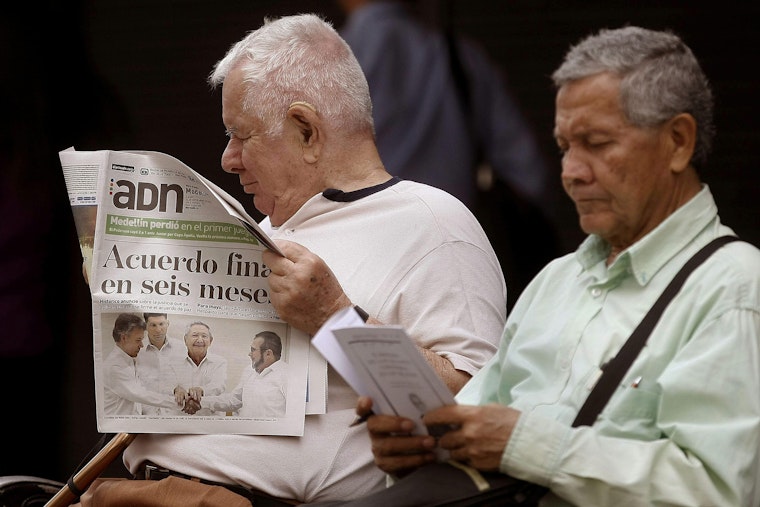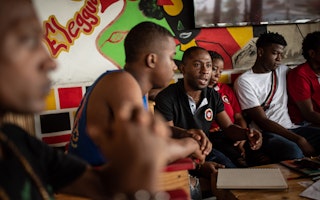After Decades of Conflict, Colombia Could Finally Be on the Precipice of Peace
By María Victoria Llorente

After three failed attempts, the last one 15 years ago, Colombia is nearing an agreement in which the Revolutionary Armed Forces of Colombia (FARC), the oldest and most resistant leftist guerrilla group in the Western Hemisphere, will lay down its arms and become a political organization operating within the country’s democratic system.
The deal will mark a fundamental step in bringing to a close one of the most painful chapters of our recent history. In just the past 30 years, according to official figures, the conflict has resulted in at least seven million victims of forced displacement, threats, homicide, and disappearance, as well as—in lesser proportion—kidnappings, sexual violence, dispossession of lands and abandonment of property, injuries, torture, and forced recruitment of children.
The government and the FARC have been conducting negotiations for more than three years in Havana, Cuba. They have already made progress on some of the root causes of the conflict: the question of land tenure and land use; the precarious state of our democracy, which is based on a clientelistic political system with little or ineffective citizen participation; and, of course, the drug trafficking that has done so much to feed the flames of the war.
In addition, key commitments have been reached to address war atrocities by putting victims at the center of the process. Although this effort will face major challenges, important gains have been made. Until recently, for instance, it would have been unthinkable for the FARC to recognize that they have been responsible for crimes. Now, their members are willing to submit to the agreed upon mechanisms of truth, justice, and reparations.
At the Fundación Ideas para la Paz, where for more than 15 years we have been studying the Colombian conflict and the options for Colombia to build a stable and lasting peace, we believe that the peace accords of Havana present us with a great opportunity to transform our country. Yet this will not happen automatically. Accordingly, we must become aware of and take action on at least three major challenges.
The first challenge has to do with changing how local government is conducted. We must overcome the chronic weaknesses of our institutions in vast regions of Colombia—the inability of the state to ensure the rule of law and provide public goods essential for development. There is profound distrust of public authorities in places where illegal armed groups have imposed their own order and where informal and criminal businesses have been the principal means of subsistence.
The second challenge is related to the criminal economies (drug trafficking, criminal mining, contraband, etc.) and the organizations that drive them. They are potential saboteurs of the postconflict scenario in many parts of the country. A top priority must be preventing armed groups from recycling former combatants and weaponry to take over the space previously occupied by the FARC. It is essential to consider strategies for intervening in the territorial conditions that facilitate the growth and spread of organized crime.
Finally, but no less important, is the challenge of cultural transformation. A sustainable peace will not be possible if we do not pursue a collective effort to reshape our beliefs about the war and address the stigmatization of those involved in the armed conflict. This will require—as described by John Paul Lederach, a mediator who has been involved in the Colombian peace process—“dialogue among unlikely people.”
In my country, we know too well that peace will not necessarily take hold after an agreement has been signed. As the government’s chief negotiator has said, the peace agreed upon in Havana will be the “little peace”; the “big peace” remains to be forged in Colombia. After more than 50 years of bloody conflict, it can’t come soon enough.
Fundación Ideas para la Paz is a grantee of the Open Society Foundations.
María Victoria Llorente is director of Fundación Ideas para la Paz.


